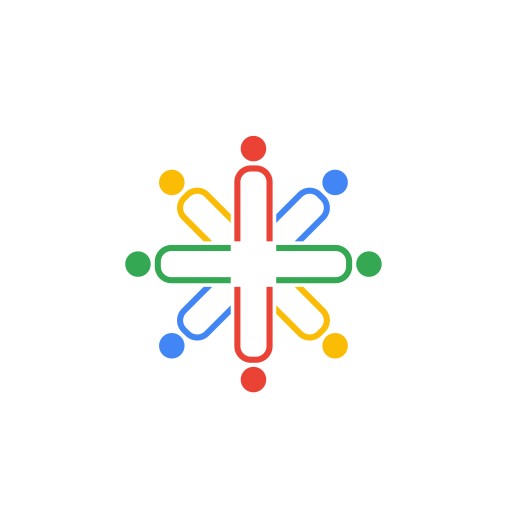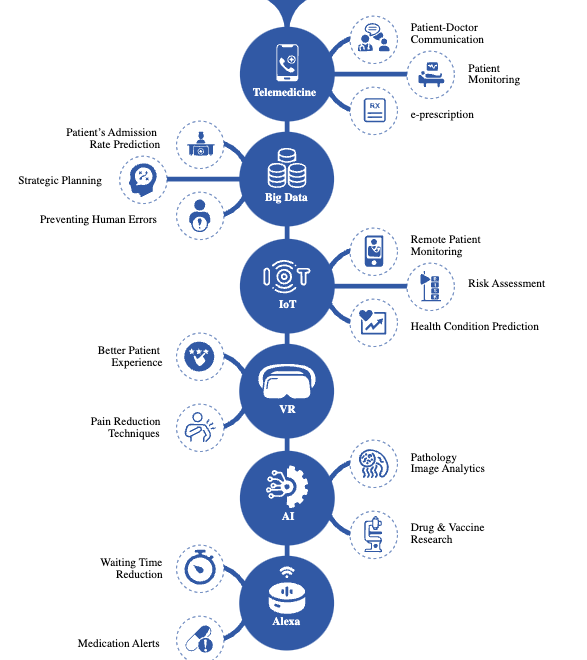We have witnessed modern healthcare digital transformation encompass a wide range of technological advancements and initiatives that leverage digital tools, data, and analytics to enhance patient care, improve operational efficiency, and drive innovation in the healthcare industry. Some key examples of digital transformation happening today in healthcare include:
- Artificial Intelligence (AI) and Machine Learning (ML): AI and ML technologies are being applied in various healthcare domains. They can analyze large datasets, identify patterns, and make predictions to support diagnosis, treatment planning, and patient monitoring. AI-powered chatbots and virtual assistants are also being used to enhance patient engagement and provide personalized healthcare information.
- Internet of Things (IoT): IoT devices, such as wearable sensors, remote monitoring devices, and smart medical equipment, are being utilized to collect real-time patient data. This data can be integrated with electronic health records and analyzed to support proactive and remote patient monitoring, chronic disease management, and early detection of health issues.
- Telehealth and Remote Care: The expansion of telehealth services has transformed how healthcare is delivered. Patients can now consult with healthcare providers remotely through video calls, receive remote monitoring, and access virtual care platforms. This digital transformation has increased access to healthcare, especially in underserved areas, reduced healthcare costs, and improved patient convenience.
- Blockchain Technology: Blockchain offers secure, decentralized, and tamper-proof data storage and sharing. It has the potential to streamline health data exchange, enhance data interoperability, and ensure data privacy and security. Blockchain can facilitate secure sharing of electronic health records, streamline medical supply chains, and support clinical trials and research.
- Precision Medicine: Digital tools and advanced analytics enable precision medicine, which tailors treatments and interventions to an individual’s unique characteristics. Genomic sequencing, data analytics, and AI are used to analyze large-scale patient data, identify biomarkers, and develop personalized treatment plans.
- Data Analytics and Population Health Management: Advanced data analytics techniques are employed to analyze large healthcare datasets, identify trends, and support population health management initiatives. Predictive analytics can help identify high-risk patients, optimize resource allocation, and develop preventive care strategies.
- Cloud Computing and Health Information Exchange: Cloud computing enables secure storage, sharing, and access to healthcare data across multiple providers and systems. Health Information Exchange (HIE) platforms facilitate seamless sharing of patient information between healthcare organizations, improving care coordination and reducing duplicate tests or procedures.
- Virtual Reality (VR) and Augmented Reality (AR): VR and AR technologies are being utilized for medical training, surgical simulations, and patient education. They provide immersive experiences, enabling healthcare professionals to practice complex procedures and enhance patient understanding of medical conditions and treatment options.
These examples highlight some of the digital transformation initiatives shaping modern healthcare. By leveraging technology and data, healthcare organizations can improve patient outcomes, enhance operational efficiency, and enable more personalized and accessible healthcare services.


Recent Comments